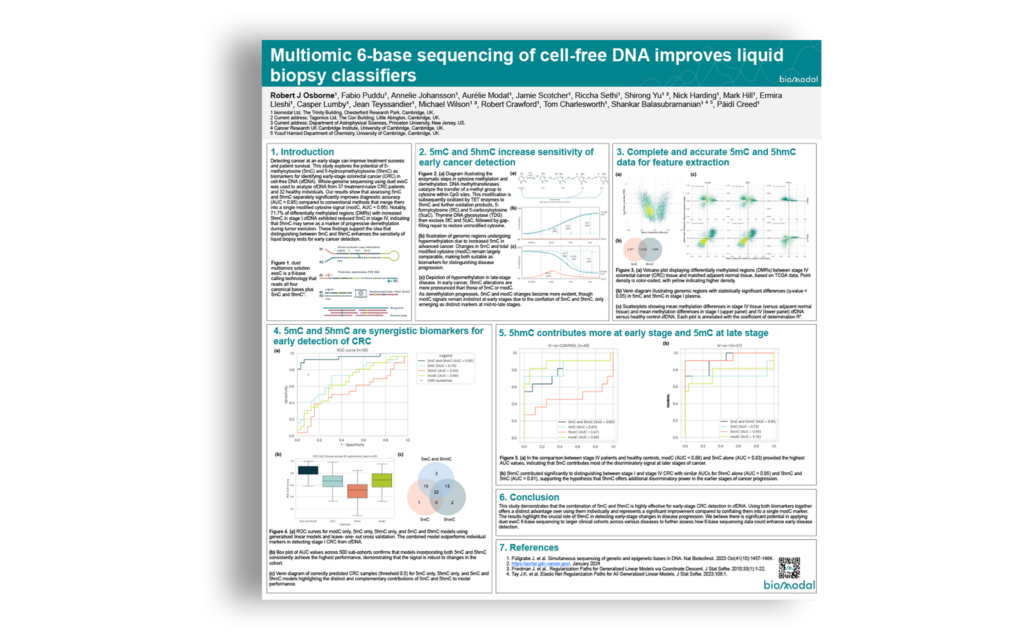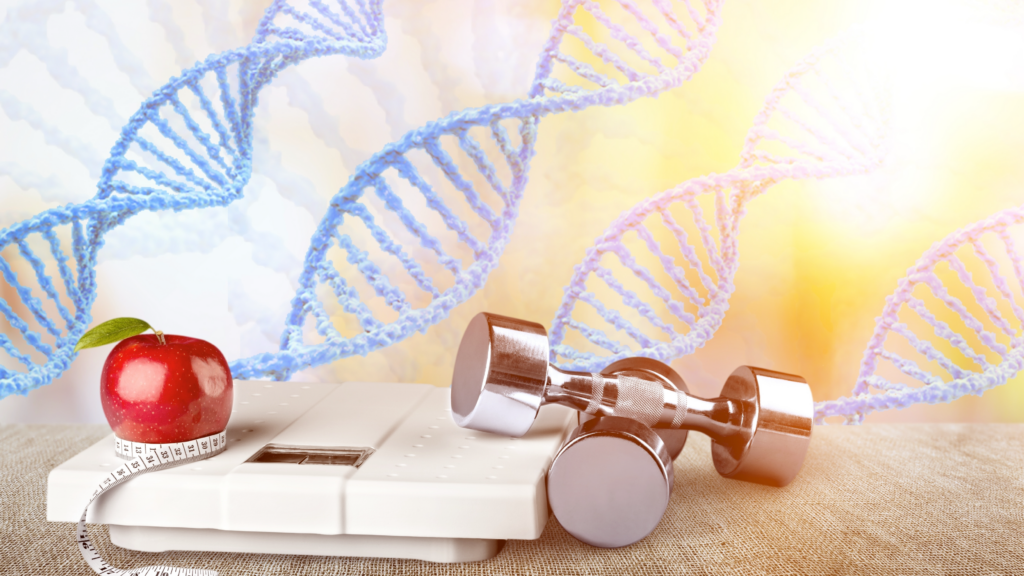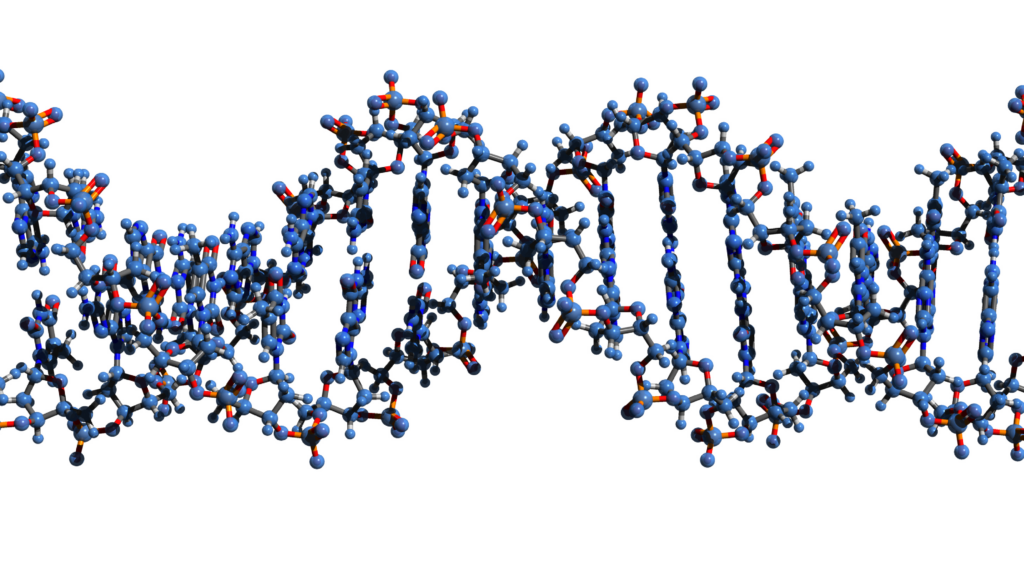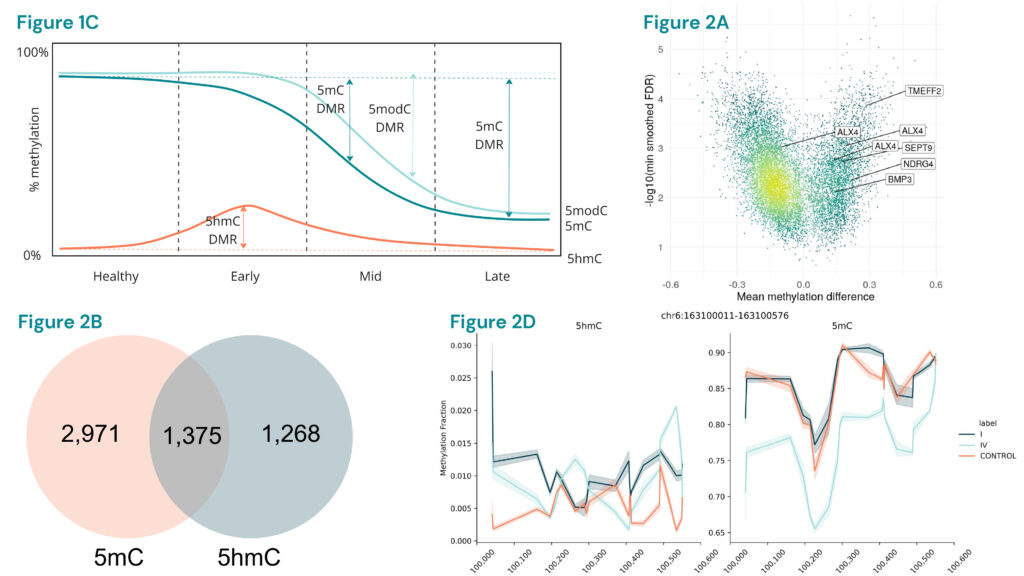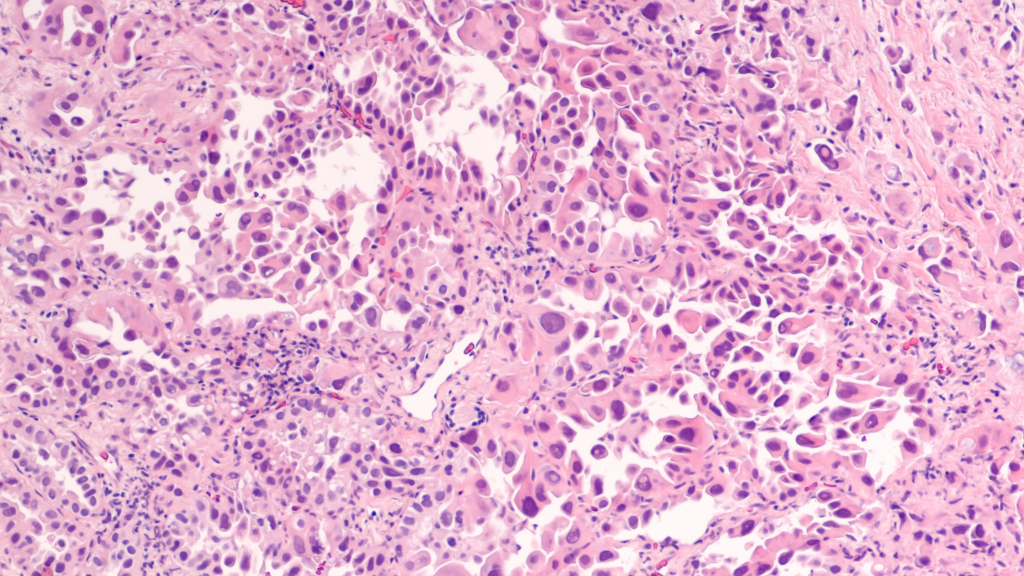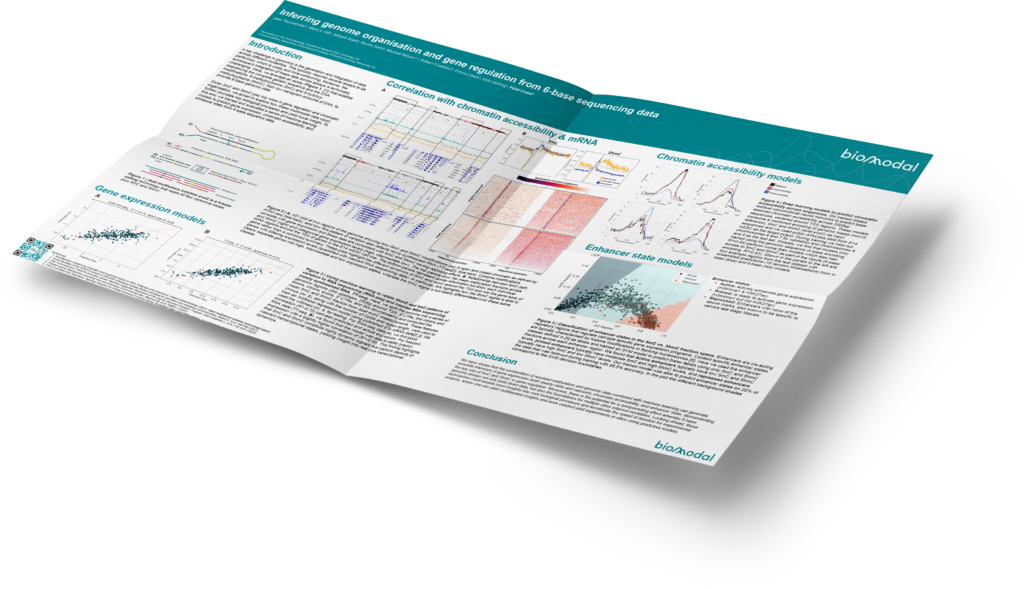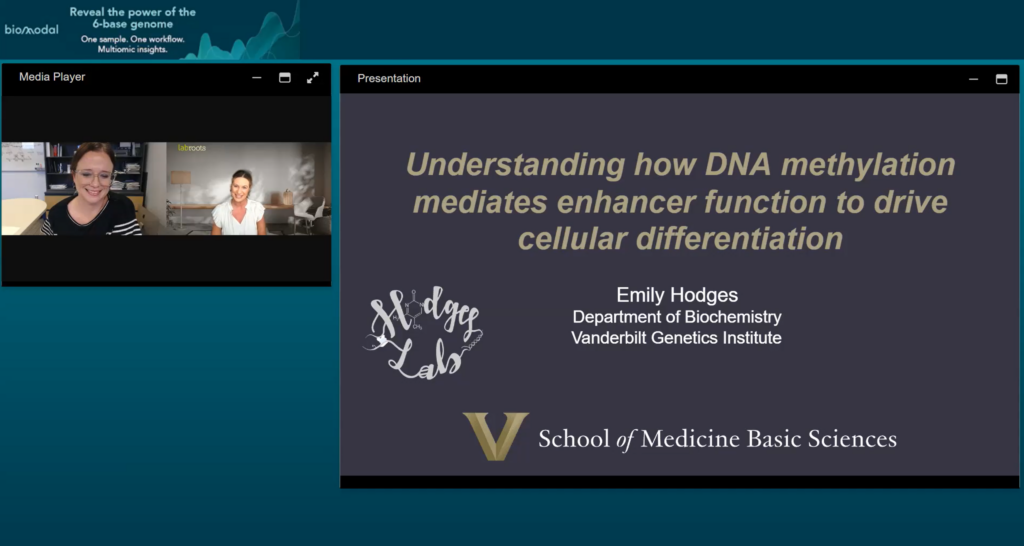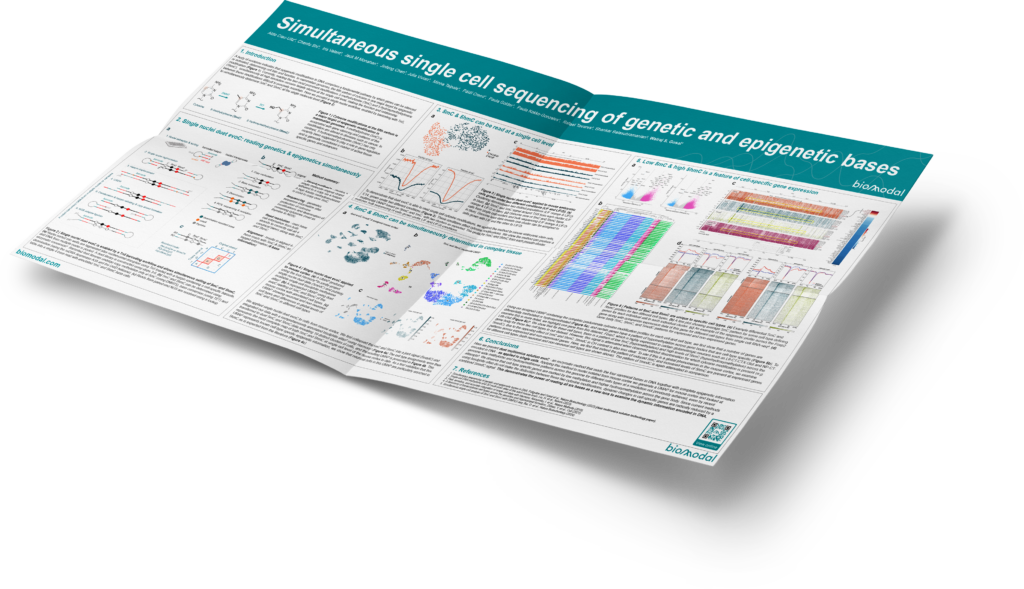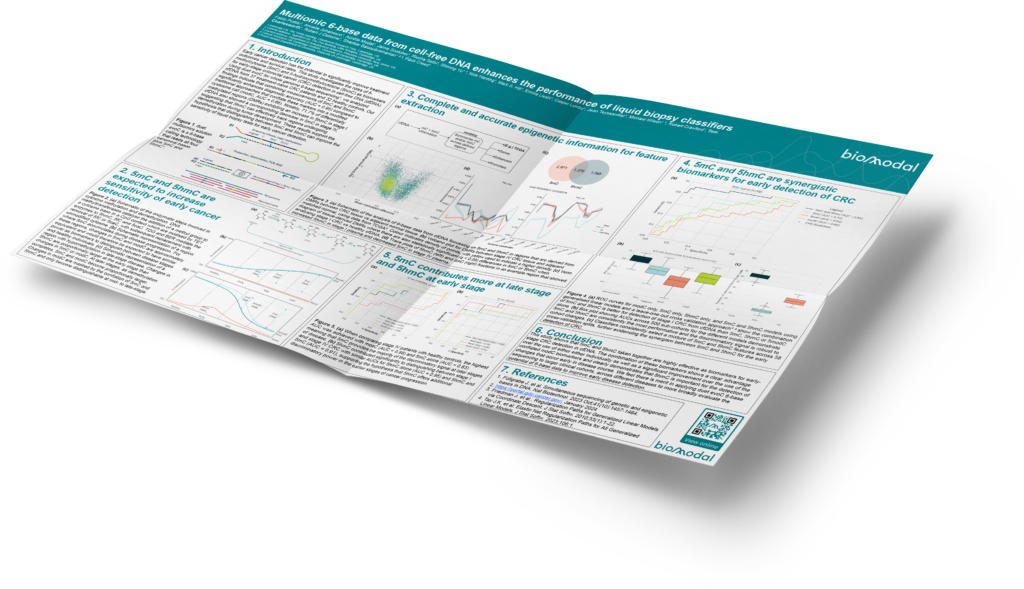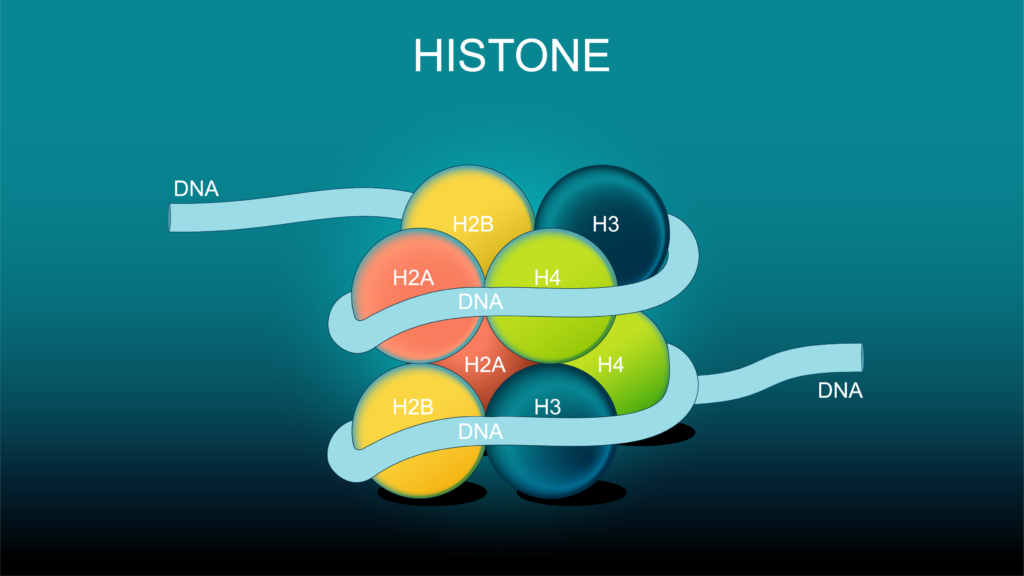Resources
Resource types
- Poster
This poster demonstrates that the combination of 5mC and 5hmC is highly effective for early-stage CRC detection in cfDNA - read it now.
- Blog post
Understanding the factors that affect DNA methylation can open up new avenues to explore human health and disease.
- Blog post
Deoxyribonucleic acid, or DNA, is the fundamental building block of life. Let's explore the fascinating types of DNA in the world.
- Webinar
Robert Osborne, PhD, Senior Vice President of Research & Development provides a high-level overview of biomodal’s bioRXiv preprint, 5mC and 5hmC are synergistic biomarkers for early detection of colorectal cancer.
- Blog post
Liquid biopsy represents a groundbreaking advancement in disease diagnostics, offering a less invasive alternative to traditional tissue biopsies, particularly for cancer.
- News article
Our study investigates the roles of 5‑methylcytosine (5mC) and 5‑hydroxymethylcytosine (5hmC) as biomarkers for early-stage colorectal cancer (CRC) detection in cell-free DNA (cfDNA).
- Blog post
The utilisation of genetic biomarkers in liquid biopsy has caused a revolution in cancer diagnostics and personalised medicine.
- Poster
Here we show that the combination of resolved methylation and genomic data combined with machine-learning can generate accurate inference of gene expression (both steady-state and nascent), chromatin accessibility, and enhancer state, demonstrating the key role of 5mC and 5hmC in gene regulation.
- Webinar
In part 2 of this webinar, Emily Hodges, PhD, Assistant Professor of Biochemistry at Vanderbilt University, will reveal new data that illustrates how the Hodges Lab is utilising the 6-base genome.
- Poster
Here we present duet evoC: an enzymatic method that reads the four canonical bases in DNA together with complete epigenetic information encoded in DNA - as applied to single cells.
- Poster
This study shows that 5mC and 5hmC taken together are highly effective as biomarkers for early-stage CRC detection in cfDNA.
- Blog post
histone modifications play a crucial role in regulating gene expression and chromatin structure. These modifications work together in complex patterns to fine-tune cellular processes.
